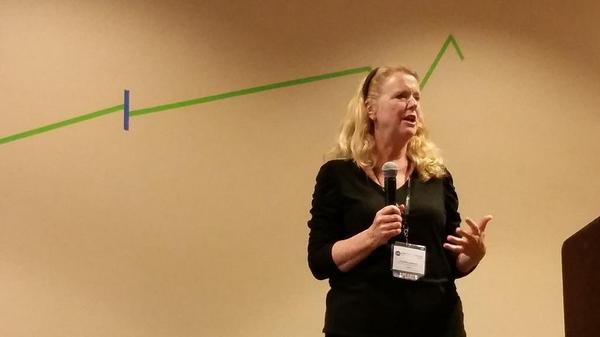Two words for the Writer’s Digest Novel Conference in L.A: Worth It!
A couple of weeks of craft workshops jammed into two and a half days may be overwhelming, but there was lots of value for $249.
Twenty plus pages of facts, thoughts, post-its to self, and business cards fill my note book so this will be a two parter.
I’ll start at the beginning and give some highlights. All of the speakers have websites and resources you can find through the links I’ve listed.
Keynote quote speaker Jonathan Maberry spoke on importance of being a good literary citizen,
“don’t be a jackass,”
“any completed first draft is a win even if it’s bad because you completed it.”
1. An Intro to Structure That Empowers Plotters and Pantsers Alike and Your Story on Steroids- Larry Brooks, Storyfix.com gave us slam dunk specifics. There are too many notes to give here, but go to his site for the free downloads. A gem for me was:
“Know the difference between concept and premise. Develop these before writing the story.”
Believe me, I’m a pantser, now in recovery, and this tip helps tremendously:
“Concept: the dramatic landscape of story that is conceptual; the stage, or arena. No character names needed. Write this in two or three sentences.
Premise: the protagonist has to have a conflict to surmount, a quest. Define your story core.”
2-Your First 50 Pages – Jeff Gerke. This author/editor is the Jim Carrey of the writing world who talked about how neuroscience relates to storytelling.
“In publishing everything is decided on your first 50 pages-if even that.”
Writing has to cause the reader to identify with someone/something in the story. Make the protagonist vulnerable or have some kind of need. Engage the readers mind with action, intrigue, curiosity. The brain is looking for danger, surprise, something new, so start with that in the beginning.

3. Martha Alderson, the Plot Whisper. She uses a plot graph to show you how to correspond your novel with the beginning, middle, and end of a plot.
There are four types of scenes: suspense, dialogue, crisis, and twister.
Catch her detailed mini-workshops on YouTube where she shows you how to plot a novel or screenplay.
Every scene should have a setting…goal…sensory details…forward movement…opposition.. and emotion.
There is a difference between the crisis and the climax of a novel:
Crisis-the antagonist wins, protagonist loses. Climax-protagonist wins and learns everything in the middle.
4. Ask the Agent Panel. A list of pet peeves and suggestions:
Misspelled names…using the words ‘fiction novel,’ bad grammar, writers who don’t read the submission rules,…pitching at inappropriate times.
As if on cue, when the Q & A period began, a woman pitched her book, “Anyone interested in….” Ugh, it wasn’t pretty.
Search for agents by using Query Tracker, Twitters #MSWL (manuscript wish list), or go to the bookstore, look for books in your genre and on the last page under acknowledgements, the agents name is usually listed. I use Poet and Writers agent listing.
One of the agents said she was looking for a YA set in prison. It was like the heavens opened up when I heard this statement. I had to make myself stop wiggling in my seat and wait for a time when I could tell her I had such a novel. During Q & A I said I had the novel she wanted, she said send it to me.
Then I asked a question: whether more emphasis was placed on the query or the first 10 pages. Two out of three agents said the first pages.
“I need 50 pages to know if a book is good, but only 1 to know it’s not.”
I hope you found something useful for your writing life. Investigate the presenters sites. Plan to attend a conference on writing craft. Invest in your writing.
If you have a specific question that I may provide information for, please ask me in the comment section.


Reblogged this on A Blog by Juan Blea and commented:
This amazing and generous writer, Mona Alvarado Frazier, has shared several tips and resources that i HIGHLY recommend….
LikeLike
You’re a good literary citizen, Juan!
LikeLike
Perhaps I should’ve asked first….but i got excited and went forward in my excitement…
LikeLike
No worries. Attribution is great.
LikeLike
I’ve never heard that term before: “good literary citizen.” Think I’ll adopt it. Also, best of luck with your YA novel. Or should I say fiction novel? Ha!
LikeLike
Jane Friedman had a good post on that as well as several other writers. Thanks, I’m collecting all the good luck I can.
LikeLike
I love me a fiction novel. they’re SO MUCH gooder than non-fiction novels!
LikeLike
My cheeks flushed when I heard ‘fiction novel;’ yes, I’ve made that mistake before.
LikeLike
What a perfect fit for your novel–good luck submitting to the agent!
LikeLiked by 1 person
Thank you for sharing all this valuable information, Mona. Although most writers know that a first page is what hooks or not an editor or agent, it’s good to be reminded that our effort must focus on a strong beginning. Glad you went and found it valuable. Now I wish you the very best to get your novel in some good hands that will find it a good home.
LikeLike
Thanks for the info and the places to look. So nice to have a good referral. Good luck with submitting!
LikeLike
Awesome info! Thanks. I’m going to “submit” this to memory. : )
LikeLike